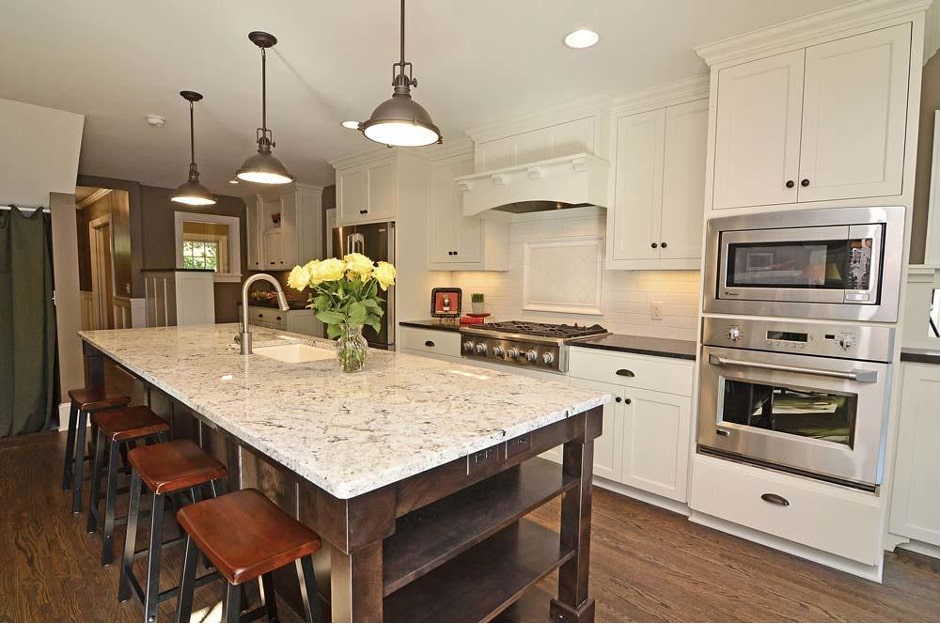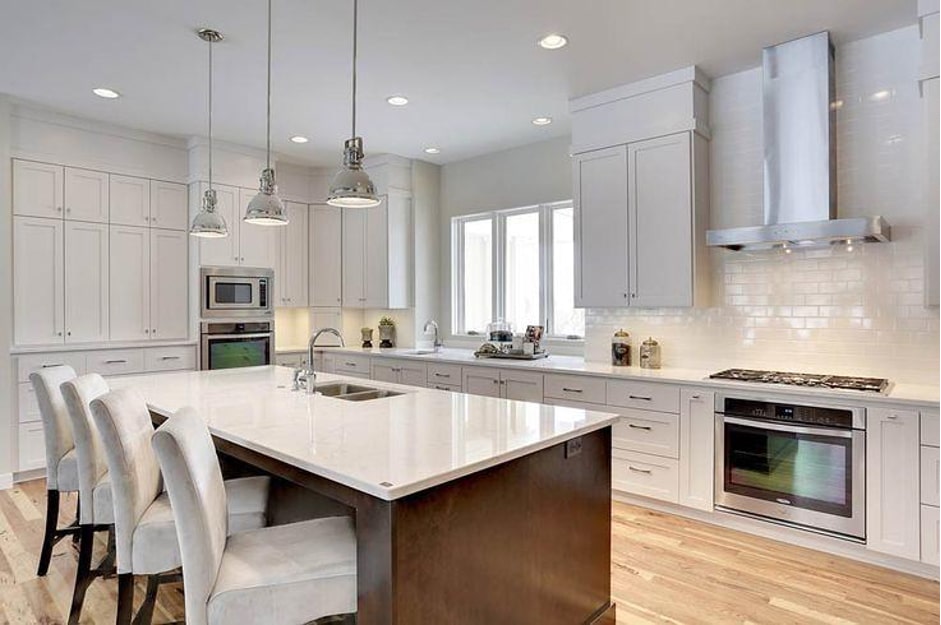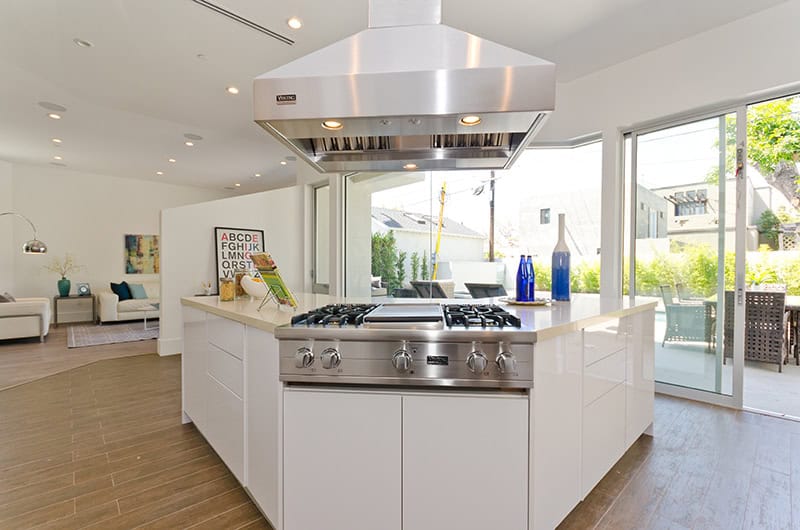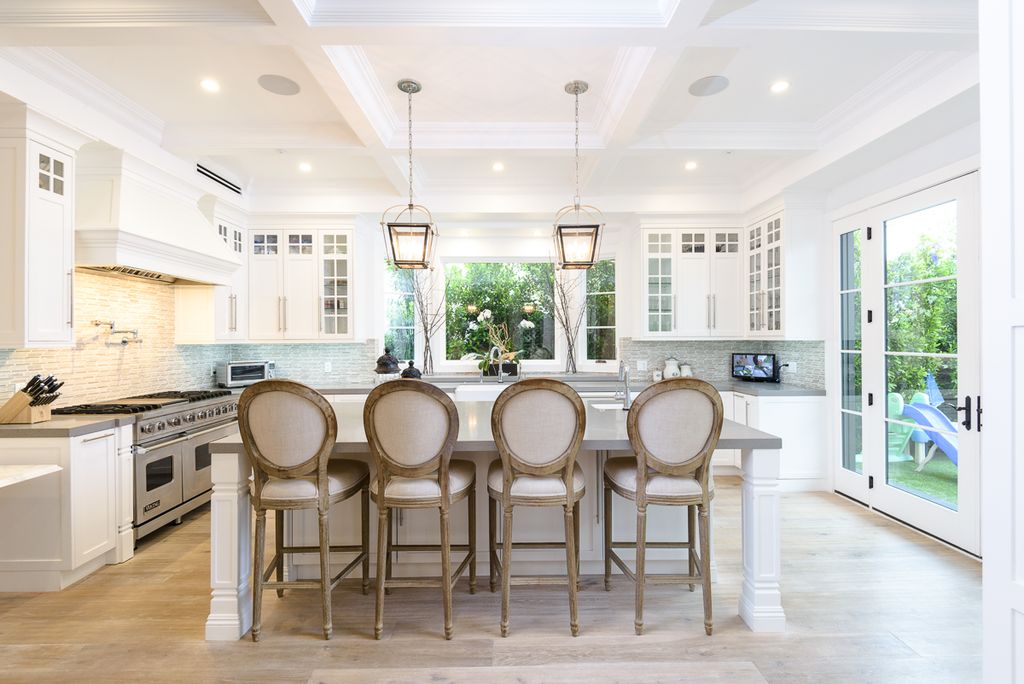Remodeling your kitchen is an exciting project that can dramatically enhance both the functionality and aesthetics of your home. However, before you begin tearing down walls or installing new cabinets, it’s crucial to address a common question: Do you need a permit to remodel a kitchen? Navigating the legal requirements can be tricky, and understanding when a kitchen remodel permit is necessary will save you from potential headaches.
In this blog post, we will explore the circumstances under which you might need a permit, providing you with a clear guide on how to proceed legally and efficiently. Whether you’re simply updating fixtures or undertaking a full-scale renovation, knowing if and when you need a permit to renovate a kitchen is crucial for avoiding fines and ensuring that your upgrades enhance your home’s value without legal complications. Join us as we delve into the essentials of obtaining the right permits for your kitchen transformation.
Do You Need a Permit to Remodel a Kitchen?

Yes, whether you need a permit to remodel your kitchen depends on the scope and nature of the changes you plan to make. Generally, minor updates like painting walls, replacing cabinets, or updating appliances don’t require a permit. However, more significant renovations involving plumbing, electrical systems, or structural changes typically do.
If you are planning to modify the layout of your kitchen by moving walls, changing the plumbing system, or adding new electrical circuits, it is highly likely that you will need to obtain a permit from your local building authority. These permits ensure that all renovations comply with building codes and safety standards, which is crucial for both your safety and the integrity of your home.
It’s important to check with your local building department or a professional contractor to understand the specific requirements in your area. Obtaining the necessary permits might seem like an extra step, but it is essential for ensuring that all aspects of your remodel are legal and up to code. Doing so not only helps avoid potential fines but also assures future buyers that the renovations were completed properly.
Kitchen Renovation Tasks that Probably Don’t Require a Permit:
- Replacing faucets or fixtures
- Installing new countertops
- Updating the flooring
- Replacing appliances
- Repainting or adding new wallpaper
These changes are usually cosmetic and don’t involve alterations to the home’s structure or core systems like plumbing and electrical.
Kitchen Renovation Tasks That Probably Require a Permit:
- Moving or installing new plumbing or gas lines
- Electrical rewiring or adding new electrical circuits
- Knocking down or moving walls (structural changes)
- Installing new windows or doors
- Adding or altering ventilation systems
These types of changes can affect the safety and integrity of your home, and permits ensure that the work is done according to current building codes and standards.
Having a checklist of these items can help you quickly determine the need for a permit. Consulting with a professional can also provide guidance tailored to your specific project and local regulations.
What Permits Are Needed for Remodeling Your Kitchen?
When planning a kitchen remodel, it’s crucial to understand the permits required to ensure your project complies with local building codes and regulations. Obtaining the right permits can protect you from potential fines and ensure your kitchen is safe and up to standard. Here’s a breakdown of the typical permits you may need for a kitchen remodel.
Building Permit
A building permit is the most common requirement for kitchen remodeling. It covers structural changes such as moving or removing walls, altering windows, and modifying the roofline. The permit ensures that the structural integrity of your home remains intact and the modifications are in line with safety standards.
Electrical Permit
Any significant electrical work, including the installation of new outlets, lighting fixtures, or major appliances that alter the existing electrical system, will require an electrical permit. This permit is essential to ensure that all electrical work is performed correctly and safely, reducing the risk of fire or electrical malfunctions.
Mechanical Permit
If your kitchen remodel involves installing or altering heating, ventilation, and air conditioning (HVAC) systems, you will need a mechanical permit. This includes tasks like adding range hoods, exhaust fans, or new ductwork. The permit confirms that the installation complies with local HVAC standards and is safe to use.
Plumbing Permit
A plumbing permit is required when any substantial plumbing work is undertaken. This could include moving sinks, installing dishwashers, or adding new water lines. The permit ensures that the plumbing work meets health and sanitation standards and prevents issues such as leaks or water damage.
Gas Permit
Finally, if you’re planning to install or modify gas lines, perhaps to switch from an electric to a gas stove, you will need a gas permit. This permit is crucial for ensuring that all gas line installations are leak-proof and meet strict safety standards to prevent accidents like gas leaks or explosions.

What Is the Cost of Obtaining Permits for Kitchen Remodeling?
The cost of permits for kitchen remodels varies widely depending on your location, the scope of your project, and local regulations. Generally, permit fees can range from as little as $50 to over $1,000. Basic permits for minor renovations might be on the lower end, while extensive remodels involving structural changes, and electrical, plumbing, or mechanical work can drive costs higher.
It’s advisable to contact your local building department early in the planning process to get a detailed understanding of the required permits and their associated costs, which will help you budget more accurately for your kitchen remodeling project.
| Type of Permit | Cost Range | Description |
| Building Permit | $100 – $500 | Covers structural changes; cost varies by scope. |
| Electrical Permit | $50 – $300 | Required for major electrical updates. |
| Mechanical Permit | $150 – $400 | Necessary for HVAC system changes. |
| Plumbing Permit | $75 – $350 | Needed for significant plumbing alterations. |
| Gas Permit | $100 – $600 | Essential for any modifications to gas lines. |
Note: The approximate cost range mentioned above in the table for each type of permit required for a kitchen remodeling is collected from different online resources. The actual permit fees will depend on the local building department’s regulations and the specifics of the remodeling project.
Consequences of Not Having a Permit for Kitchen Remodeling
Remodeling without the necessary permits can lead to numerous issues, both immediate and long-term. You might face fines and penalties if your project is found to be non-compliant with local codes. In severe cases, you may even be required to dismantle the work done at your expense.
Furthermore, unpermitted renovations can cause problems when you decide to sell your home. Potential buyers might be deterred by the lack of permits, and you might be required to resolve these issues before completing any sale.
Real-life examples abound where homeowners faced legal headaches after skipping permits. These serve as cautionary tales emphasizing the importance of following local regulations.
Conclusion
Renovating your kitchen can significantly enhance your home’s functionality and aesthetic appeal. However, the process involves more than just choosing the right fixtures and finishes. Understanding and complying with the local building codes and permit requirements is crucial. Although obtaining permits may seem like an extra step and expense, it protects you from potential legal and financial issues and helps ensure that your renovation is safe and up to code. Always consult with professionals and your local building department to navigate these requirements effectively.
Kitchen Renovations with Diditan Group
At Diditan Group, a premier home builder in Los Angeles, California, we specialize in transforming your kitchen into a modern masterpiece. Our expert team collaborates closely with you to design a kitchen that not only meets your aesthetic preferences but also enhances functionality. Whether you’re looking for custom cabinetry, luxury countertops, or state-of-the-art appliances, we ensure every detail is tailored to your lifestyle.
Start your kitchen renovation journey with Diditan Group today and turn your dream kitchen into reality. Contact us to schedule a consultation!
Frequently Asked Questions
Q.1 Do you need a permit to redo a kitchen
Ans Whether you need a permit to redo a kitchen depends on the scope of the work. Minor updates like painting or replacing cabinets typically don’t require permits. However, structural changes, electrical or plumbing work usually do. Check with your local building authority for specific regulations in your area.
Q.2 Do I need planning permission for my kitchen?
Ans You typically don’t need planning permission for kitchen renovations inside your home unless you’re making structural changes or altering the building’s exterior. However, for significant modifications, check local regulations and building codes, as these vary by location and may require permits for electrical or plumbing work.
Q.3 Do I need a permit to replace my kitchen cabinets?
Ans Generally, you do not need a permit to replace kitchen cabinets as it’s considered a cosmetic update. However, if the replacement involves significant structural changes or impacts plumbing or electrical systems, a permit may be required. Make sure to verify with your local building authority to comply with all relevant regulations.







Leave A Comment